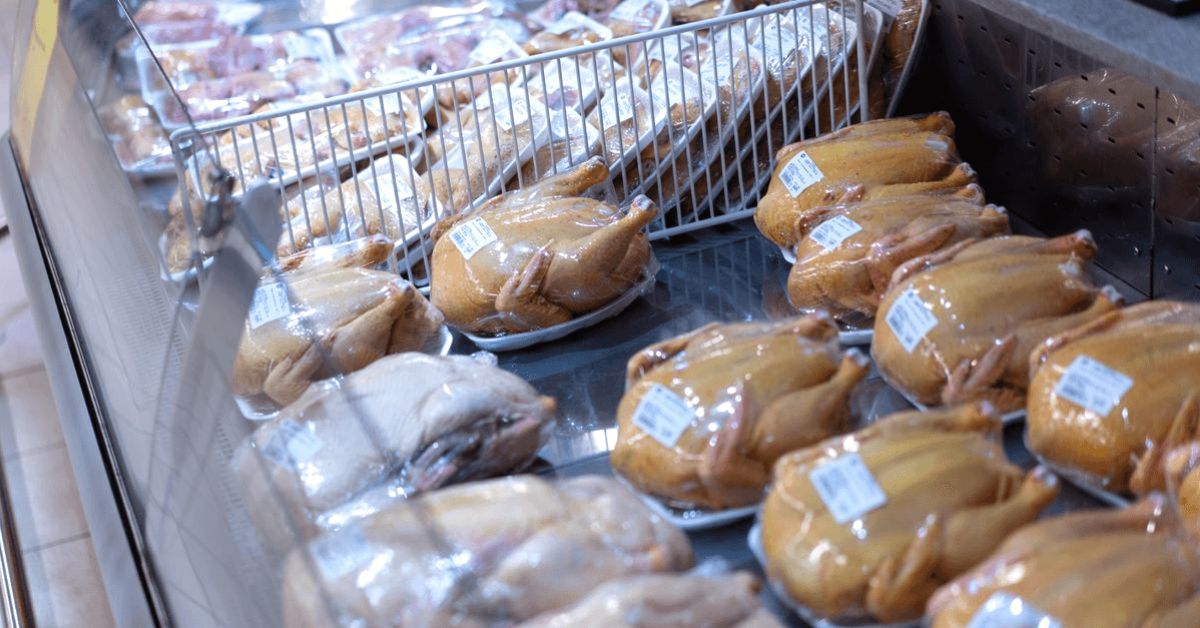Across the globe, food prices are on the rise due to shortages in supply. In Malaysia, one of the most apparent indicators of this trend is found in our poultry.
As a result, Malaysia has banned exports of chicken starting from June 1 until domestic prices and production stabilise. For context, Malaysia exports around 3.6 million chickens a month.
While countries such as Singapore have been expressing concern over this ban, how will it be impacting Malaysians? Here are the possible scenarios.
Chicken breeders may struggle
Malaysia has imposed a local ceiling price of RM8.90 per kg on chickens from February 5 to June 5, 2022, which means that doing business with Singapore would actually be more profitable for Malaysian chicken breeders, especially considering the weakening Ringgit.
But with the export ban in place, farmers will lose out on doing business with Singaporean importers.

By the time the ban lifts, Malaysian poultry breeders might still be in trouble, because countries like Singapore could already be looking elsewhere to source their chickens.
On the bright side, in February this year, Malaysia’s agriculture ministry said it would be offering a subsidy of RM729.43 million for chicken breeders, though it’s reported that only RM50 million has been given out so far as of May 24. Hopefully, with plans to expedite the payments, local chicken breeders will start to be more alleviated in the short term.
F&B businesses may experience more stability
On top of the export bans, import permits for chicken and wheat have also been abolished, meaning importers can now do business in Malaysia much easier, helping with shortages. The objective of all of these efforts has been to stabilise local poultry supplies and prices.
Ideally, businesses should then be able to get more chickens at lower prices.

But don’t count your eggs before they hatch. The ban on chicken exports might not necessarily mean cheaper chickens at all. Farmers have cited that the price hikes in chicken are not caused by the exports, but instead by feed prices.
According to an article by Free Malaysia Today (FMT), it has been reported that chicken feed has gone up from RM500 per tonne to RM1,900 per tonne. That’s nearly a 400% increase.
As you can imagine, more expensive feed means the chickens will be fed less. And the less fed they are, the slower they’ll grow, thus restricting the supply of the birds.
However, FMT also reported that the plantation industries and commodities ministry will be increasing efforts to promote the use of palm kernel waste to replace the typically imported chicken feed made of corn and soybeans.
The agriculture and agro-based industries minister, Datuk Seri Ronald Kiandee, said on May 31 that chicken supply has been stable in the past 10 days, so perhaps local F&B businesses that rely on chicken will be able to continue without much issue.
More chicken for consumers?
On that note, if chicken supply is already back to normal for 10 days now, won’t the export ban plus increased imports lead to a surplus in chickens? If so, that could potentially lead to cheaper chickens for us all. But, at what cost?

In a Channels News Asia (CNA) article, Professor Dr M Nasir Shamsudin of Universiti Putra Malaysia’s Faculty of Agriculture said “curbing exports will ensure more supply locally and prices will decline but this will kill the industry.”
He also said to CNA, “Malaysia is 114 percent self-sufficient in the production of chicken, meaning that at least 14 percent of the product is being exported. Export means the industry can grow.”
If the ban continues long-run and the industry stops growing, chicken breeders may eventually stop seeing the potential of the business and shut down operations. When that happens, Malaysia may have to rely on foreign sources of chickens, driving up the prices indefinitely.
Ultimately, brands and consumers will be impacted, and we might even end up where we started with the chicken shortage, but worse.
-//-
This ban comes in an era of heightened food nationalism and protectionism whereby countries are curbing exports in order to put their own citizens first.
However, it’s important to realise that in this global ecosystem, we all need each other in order to maintain healthy, robust markets (and diets).
Yet, perhaps the analogy of putting on your own face mask first should be referenced here. Hopefully, by the time we get out chicken supply back on track, we are still able to help out elsewhere.
- Read other articles we’ve written about Malaysia here.
Featured Image Credit: 123rf.com









